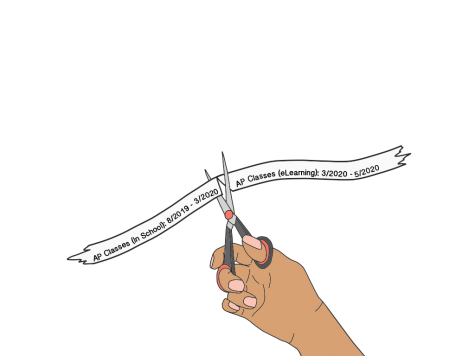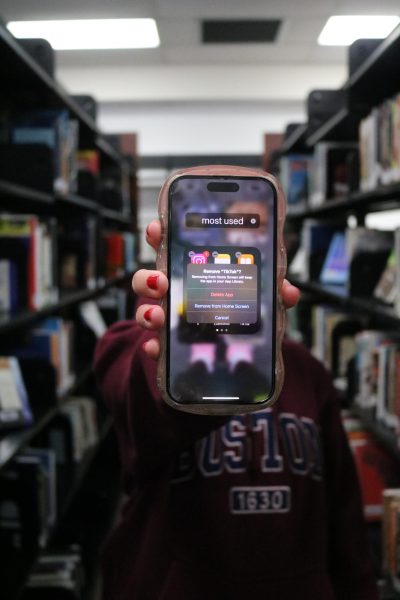COVID-19 forces changes to AP curriculum, testing
Scholastic life as we know it is changing due to COVID-19, with AP tests being no exception. With school cancellations and schedule changes, the College Board has rolled out major changes to this year’s AP testing.
On March 20, the College Board posted an update to their website about changes to AP testing for schools impacted by COVID-19. The two major points addressed in the update were that there will be remote learning resources for students and that there will be abridged at-home testing this year, with no traditional face-to-face exams.

All classes have to be moved to e-learning as of March 13 and are set to resume in May as of March 31.
Students have worried about not getting credit for their AP classes, but the tests still count as credit and placement. The College Board stated on their update that “Colleges support this solution and are committed to ensuring that AP students receive the credit they have worked this year to earn.” The tests will only cover what most students have learned up until early March.
The test setup is different from what usual testing looks like. For traditional AP classes (excluding the AP arts, Computer Science Principles and AP Capstone), tests will be 45 minutes long; more details on the content of the tests will be released on Friday, April 3. There will only be free-response questions for each test as opposed to multiple choice.
Along with the changes previously stated, the College Board will also offer two different testing dates for students as opposed to one. One date will be sooner than the other one due to some students wanting to take the test while the information is fresh while others may opt to wait a little longer so they have more time to prepare.
As for the non-traditional courses mentioned above, the deadline for their Digital Portfolios, which is normally at the end of April, has now been extended until May 26 at midnight. The AP arts have an abridged selected works and sustained investigation; Computer Science Principles will not include a multiple-choice section; and AP Capstone classes will no longer have the presentations associated with their research.
Even though these changes may seem drastic, the College Board says that scored, at-home student work isn’t new. They state that they have been using this method as part of the AP Computer Science Principles and AP Capstone courses.
On the LHS side, AP coordinator Mr. Ray Albin, an associate principal, stated through email that “[LHS is] providing learning experiences in all of our courses to cover the core curricular standards of each course using a variety of different activities.”
If students want supplemental materials, social studies department supervisor Mr. Brian Voss recommended that students use “teacher documents, Google hangouts, access to unit practice exams through the College Board, Khan Academy, YouTube, teachers recording their lectures, and supplemental readings.”
The College Board has also released some resources of their own. On the official AP YouTube page, there are daily live streams for all AP classes. These review videos are taught by AP teachers from across the country. The content of these live streams go over concepts from the first 75 percent of the course, with supplementary videos being released on the final 25 percent. The schedule for the daily live streams can be found on the College Board website or on the AP YouTube channel. Videos can also be accessed on the channel after they have been live streamed.
Some teachers have also opted to utilize AP Classroom from the College Board website, where free response questions like the ones found on the online tests will be posted. These were originally only used for in-class instruction, but now can be assigned from the teacher digitally.
For the most up-to-date information on AP testing, since changes and updates have been occurring regularly, check out the College Board’s website.



![Mr. Abullh Ali, manager/assistant, helps open Queen Yemeni Coffee in downtown Libertyville at 606 North Milwaukee Ave. With the help of employees such as manager and LHS senior Yousef Taha, they are able to bring the Yemeni and Ethiopian culture to Libertyville by using their Queen spices, cinnamon and cardamom in their drinks such as Adani Chai, which is inspired by Sheda, the Queen of Yemen and Ethiopia. “The history of our coffee [is] a long history and we believe that Yemen and Ethiopia started the coffee and we are bringing something unique to the community,” Mr. Ali said.](https://www.lhsdoi.com/wp-content/uploads/2025/04/Photo-1-600x400.jpg)



